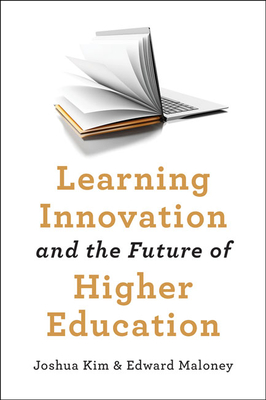 Learning Innovation and the Future of Higher Education by Joshua Kim
Learning Innovation and the Future of Higher Education by Joshua Kim
My rating: 3 of 5 stars
This book offers useful insights but they could have been shared in a much shorter format. I have encountered and observed many of the barriers to learning innovation that these authors detail, but I disagree with the authors’ call for a separate academic discipline for learning innovation as a potential solution to these challenges. I think there are much better ways to demonstrate the value and stabilize the roles of learning innovation and learning innovation professionals within higher ed. I’d rather not get caught up in splitting hairs within the already robust learning sciences disciplines.
Here are my takeaways and pull quotes:
Describes learning innovation movement in higher education
– “Learning innovation must become Provost independent to survive the next funding crisis.”
– “Teaching methods are best thought of as disciplined experiments”
– Cites Aoun’s Robot-Proof: Higher Education in the Age of Artificial Intelligence to emphasize “the recentering from traditional information transfer to activities that support the literacies (data, technological, human) and capacities (systems thinking, entrepreneurship, cultural agility, critical thinking) necessary for students to adapt to new economic and professional realities
-Distinction between cMOOCs and xMOOCs:
-cMOOCs “collaboratively developed between facilitator and learner”
-xMOOCs developed by faculty
Contextualizes learning innovation in organizational systems and rejects disruption theory as model for higher education
– Cites Kristen Eshleman’s adaptation of McKinsey’s Three Horizons model as an approach to where learning innovation fits in
-Horizon 1: Execution
-Horizon 2: Continuous Improvement
-Horizon 3: R & D
-“It’s become critical to frame the activities of learning organizations within the language of experimentation and research”
-“all new learning initiatives are undertaken with a keen awareness of the career progression gates that faculty must navigate”
-“part of the role of learning innovation is to transfer the risk of engaging in education R & D efforts from the faculty to the learning organization”
-“challenge long-standing structural elements that limit momentum for change”
-Case studies from Boston University, California State University Channel Islands and Davidson College demonstrate different approaches to catalyzing disciplined learning experiments, humanizing educational technologies and structures for incubating leaning innovation
-Rejects disruption theory as a model for learning innovation because learners are not products
-“no longer passive consumers, students now expect to be partners in learning in ways that challenge long-standing assumptions about higher education”
-“The focus of innovation should move towards enabling educators to develop individual and personal relationships with learners.”
Advocates for separate disciplinary field
-“Lack of comparative data about similar initiatives across schools makes it difficult to assess the lasting impact of any particular learning innovation”
-“social networks are important in how we receive information at all levels- even academically”
-“Achieving a deep understanding of the drivers and inhibitors of a postsecondary turn to learning requires space to develop and explore ideas, share outcomes and data and analyze meaning.”
-“Conclusions about the efficacy of learning innovation efforts from practitioners, consultants and bloggers risk being ahistorical, noncomparative and decontextualized”
-“The modern conception of an academic discipline, one tied to the development of university departments in the US offering specialized programs of study did not emerge until 1825”
-Could offer more academic freedom “leaders for learning innovation often do not have tenure protection” “a scholar of learning innovation is potentially at odds with the messaging of their employers”
Counter arguments to establishing a separate field
-Discipline already exists
-Amplifies academic caste system
Where learning innovation is happening
-“in the introduction of data-driven teaching decisions that professors are increasingly able to make because of greater access to analytics about how their students are learning”
-“in the collaborative partnerships that instructional designers, faculty developers and faculty [and TAs] are building as they design and teach courses”
Challenges and gaps to address in learning innovation
-In addition to understanding learning theories and effective pedagogical practices, today’s learning professionals need to understand
-History of Higher Education
-Postsecondary financing and budgets
-Higher education leadership
-Higher education ecosystem of demographics, economics and competitive forces
-“learning innovators rarely get the opportunity to engage with the campus leaders they most need to collaborate with to develop sustainable institution-wide initiatives to advance learning”
-“faculty feel their roles are being undercut by overspending on administrative functions”
-“non-faculty roles considered ‘support’ and left out of governance and decision-making”
-Need for sustainable sources of funding
-This work is often invisible within schools and universities, much less visible across

